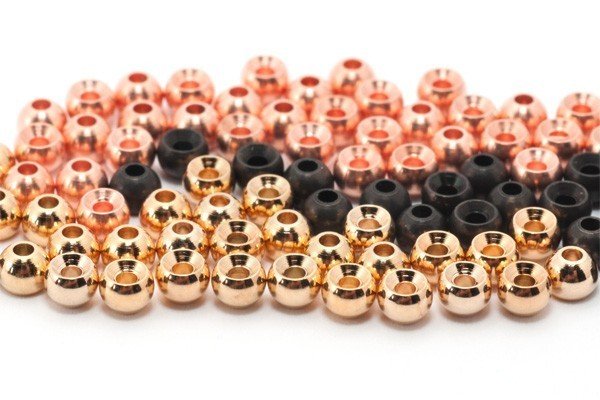
Hi guys,
We have a brand new riddle for you:
How you measure the diameters of the beads ( like brass beads, plastic beads or tungsten beads)?
– cheap way( means no special or expensive tools) only what everybody has at home
– easy way
– fast and simple
The winner will be guy/girl with the first answer posted here 🙂 and will receive a Troutline Coupon of 10% discount and 4 bags with tungsten in different sizes


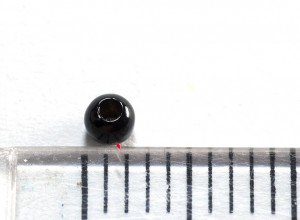
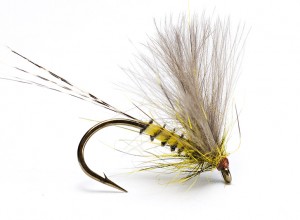
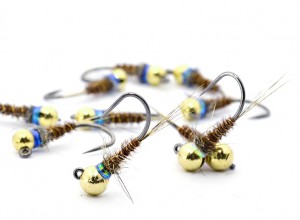
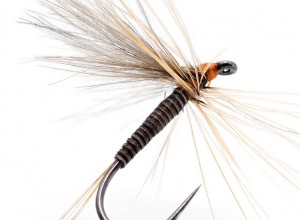
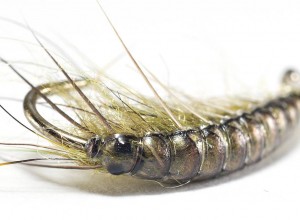
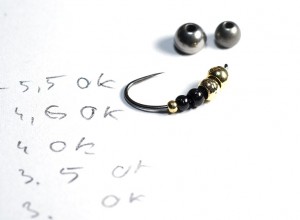
October 11, 2016
Use caliper
October 25, 2016
Edward,
Use different size mesh sieves. With small mesh size the smallest beads fall through, the larger do not.
Use a slightly bigger mesh and the next size falls through, keeping the bigger beads.
As you increase the mesh size, the beads fall through by size EVERY time.
Need a bunch of sieves, but they are cheap and they get the job done.
Mark the sieve as to the size bead it passes. Keep all of them out of the kitchen so wife does not use.
October 25, 2016
Forgot to add:Softly SHAKE the mesh sieve so beads move around. That way one’s not perfectly round will fall through.
October 11, 2016
Use caliper
October 12, 2016
expensive, not all of us have at home such tool
October 11, 2016
I don’ measure I believe. But if I doubt I can use Vernier. 🙂
October 12, 2016
you are a great client for sellers 🙂
Vernier is good but how?
October 13, 2016
Paul said nearly how with Vernier Calipers. But, they’re not perfectly spherical like he said, but it’s nearly good and most important – FAST. 🙂
I’m great buyer, I agree. 😀 But, one time screwed – no more orders. I think that you guys – sellers, should send correct size of beads, and keep track of measurement. 🙂
October 11, 2016
The beads themselves could be measured with vernier calipers for the most accurate reading, though you are relying on aligning all the measured beads exactly the same. Beads are not perfectly spherical, so you would need to ensure the measurements are taken from the same points on each measured bead.
Not everyone has a set of vernier calipers at home (as I do), so a ruler or metal rule (preferably) could be used instead. Not quite as accurate as the vernier caliper but more accessible. The point about measuring across the same dimension of the bead still stands.
Once the beads are measured; the most reliable way of repeatably measuring beads (say in high volumes) would be to use a card with punched holes in the sizes of most commonly used beads – like a spaghetti measure but with smaller holes sized for bead dimensions.
October 12, 2016
correct Paul, But the correct and complete answer was provided by Daniel 🙂 Can be done even by a child with 7 years 🙂
October 12, 2016
Daniels method is a rough and ready method, but it is not repeatable nor reproduceable.
If I have say 5 beads of 1mm, 1.1mm, 1mm, 1.2mm and 1.mm; the total will be 5.3mm. If I measure using Daniels method, I will know that I have 0.3mm ‘extra’ but I won’t know which beads are bigger or smaller by eye. All I will know is that I have an ‘extra’ 0.3mm … that I shouldn’t have … so it’s not a reliable method.
If you size a card with holes (e.g. a bead template); you would have a more repeatable and reliable measure of bead diameter because a 1.2mm bead won’t easily pass through a 1mm diamteter hole.
January 30, 2023
In order to easily measure retrieved tungsten beads I have been using a simple plastic template that is primarily
for measuring twist drill bits. They are called a Drill Gauge and they often give them away at hardware stores as promotional item like they do with a paint stirrer or yardstick. Once you locate the correct hole that will give you the diameter of the drill bit or the bead.
After I wrote this I went over to my fly tying bench and tried it, it worked perfectly. My 7/64 slotted head bead was perfectly aligned with the 7/64 hole. Which I found out by reading the printing on the card is 2.78mm so slightly bigger than a 2.5mm bead.
I often drop beads on the floor underneath my tying bench. I can locate them with a flashlight and retrieve the bead with my handy magnet stung on some mono, but once I get them back I am often confused as to what size they are so I put them aside along with the odd hooks.
But now with the drill gauge I can put them away properly.
This may be a small strike for order in an endless battle to keep my tying area tidy and organized but I will chalk it up as a victory.
January 31, 2023
Thank you Paul for your contribution 🙂 very useful and interesting !
Cheers,
Lucian
October 11, 2016
Tape Measure
October 11, 2016
Or everyone now have phone do we can download application which measure beads
October 11, 2016
with a measure tape under my flytying lens
October 11, 2016
The cheap way – to line 5 beads up and measure them on a ruler.. then divide that by 5! under 1cm 0 1.5mm, 1cm = 2mm etc
the fast & simple way.. and the fastest way.. to read what you put on the packet that you send us!!
October 12, 2016
correct. Better with 10 or 20beads!
October 11, 2016
By the smalles hole.
October 11, 2016
take a wooden or plastic plate dril holes in it in wich size you have beads to measure
October 12, 2016
a hole of 1.1mm or 1.2mm or 1.3mm is quite difficult to be done correctly – sorry, is good but need good stuff, and too much time 🙂
October 11, 2016
By the hook shank!
October 12, 2016
complicated 🙂 impossible to measure in this way
October 11, 2016
By the hook hole!
October 12, 2016
how? 🙂
October 11, 2016
Drilled metal plate
October 12, 2016
yes, I know what you say but do you have in all sizes, for example 1.1mm , 1.3mm, 1.7mm? 🙂
October 12, 2016
No measuring needed. All beads are created equal, stored in one box full of different colors, sizes and materials. When tying a new bug, simply open the box and go with your feeling. On the hook it goes. If it fits and feels right proceed to tying the fly. If it doesn’t feel right, swap the bead with another one in your box. Repeat as needed.
October 12, 2016
yeah, I know Nick but there are guys telling you that sell 3.5mm beads and you buy 3.3mm 🙂
cheers,
Lucian
October 13, 2016
Find out how ‘the guys’ are measuring the beads. Beads are not perfectly spherical so it would be easy to measure the exact same bead as 3.3mm and 3.5mm depending on where and how you measure them.
October 12, 2016
Poke them in a empty drill bit set …I’m cheap … lol
October 12, 2016
lol 🙂
October 12, 2016
I have printed out a measuring paper, that one used with a lot of tiny squares. I just put it on it and instantly see how many squares it cover.
October 16, 2016
Hi, yoi can use this http://articulo.mercadolibre.com.ar/MLA-613368302-plantilla-de-circulos-marca-pizzini-10-puntos-_JM .
Sorry for copy the link, but i cant paste a photo.
Its a thecnical drawing ruler. Cost about 5 dls. Come with holes from 1 mm, 1.5 mm, 2 mm, etc.
October 16, 2016
PS. This ruler come un 0.1 mm variatons too.